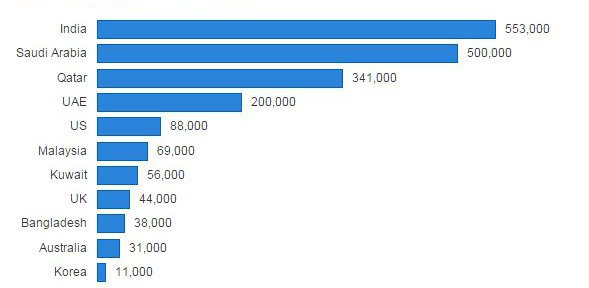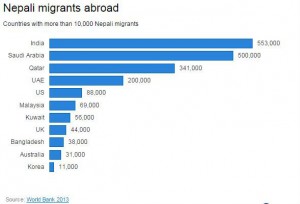This post was contributed by Michael Boampong, PhD candidate in Development Studies at Birkbeck’s Department of Geography, Environment and Development Studies (GEDS)
Days after the devastating earthquake in Nepal that has left over 5000 people dead, many are injured and lacking essentials such as food, water, and shelter.
There has, however, been generous response in terms of media attention and aid mobilization for rescue and recovery efforts. Within this scope, there has been a profound attention on the need to avoid the mistakes made during and after the Haiti earthquake and the Indian Ocean tsunami.
While some attention has focused on the return of Nepalese migrants from Gulf States, little attention has centred on how migration policies and financial institutions (including banks and money transfer operators) can help in the recovery process.
Here are some practical ideas:
- In the short-term, offer temporary protected status for Nepalese abroad. This can allow Nepalese in stable destination countries to stay and work for an amount of time and send money back to their relations who have been displaced by the quake. With the Nepalese government already struggling to meet relief needs, allowing migrants to stay seems plausible. In fact, reported tensions are likely to worsen if people are forced to return home under such dire conditions.
- Restore remittance services and waive transfer cost. Migrants are one of the first responders to natural disasters and they are more likely to send money to relatives who are in need. However, the question arises over the means of transfer when the physical infrastructure has been damaged.
Remittances to Nepal are estimated at $5 billion per annum and remain a crucial part of household livelihoods. Restoring services – and perhaps waiving or reducing the cost of transfer – to affected communities can increase access to finance, thereby enabling recipient households to rebuild their livelihoods with remittances from relatives overseas.
Of course, these ideas are not the silver bullet for the present situation in Nepal; however, it brings to light the lack of disaster preparedness in a country that is earthquake prone, has poorly regulated urbanization and housing – often built with migrant remittances – and that has failed to adhere to building codes as expected in the government-spearheaded National Plan of Action on Safer Buildings.
Helping the government to ensure the implementation of this framework should be a priority in the coming months.
Find out more


